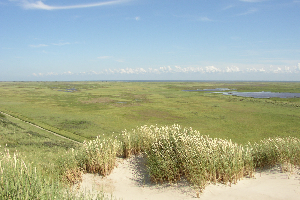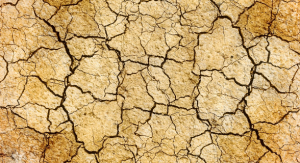Worldlog week 19 – 2015
Ik heb goed nieuws om mee te beginnen! Dankzij een motie van onze partij mag er voorlopig niet naar gas geboord worden op en rondom het Nederlandse Waddeneiland Terschelling. Een meerderheid van de Tweede Kamer stemde voor onze motie. Terschelling ligt in het Waddengebied. Dit is unieke, beschermde natuur die momenteel onvoldoende beschermd wordt tegen schadelijke activiteiten zoals gasboringen en zoutwinning. Ik ben erg blij dat onze motie is aangenomen en wij blijven strijden dat er in de toekomst helemaal geen nieuwe gasboringen rond het Waddengebied komen.
In mijn Worldlog van twee weken geleden vertelde ik al over de fraude met kalkoenvlees die bij een aantal slagers in Nederland geconstateerd was. De Nederlandse Voedsel en Waren Autoriteit (NVWA) is nu een breed onderzoek gestart om te onderzoeken of slagers structureel goedkoop kalkoenvlees als lamsvlees verkopen.
Vorige week sprak ik ook al over de vluchtelingenstroom van mensen uit onder andere Syrië, als gevolg van de burgeroorlog die daar plaatsvindt. Ik blijf er binnen, maar ook buiten de Tweede Kamer op wijzen dat het belangrijk is om deze problemen in een breder perspectief te plaatsen. We moeten niet alleen kijken naar korte termijn oplossingen, maar juist ook naar de voedingsbodem voor deze problemen. De vluchtelingenproblematiek hangt bijvoorbeeld ook samen met het feit dat wij meer consumeren dan de aarde aankan: voedselschaarste, droogte, ontbossing. Allemaal problemen die zorgen voor conflicten, oorlogen en vluchtelingenstromen. Zo blijkt bijvoorbeeld uit dit onderzoek. Ik vind het hoog tijd dat de politiek deze problemen eindelijk serieus gaat nemen!
Uit een rapport van het Wereldnatuurfonds (WNF) blijkt dat als er geen actie ondernomen wordt er in 2030 zowat 170 miljoen hectare bos verloren zal zijn. 170 miljoen hectare is even groot als de oppervlakte van Duitsland, Frankrijk, Spanje en Portugal bij elkaar. De ontbossing zal plaatsvinden in 11 gebieden, waarvan zich 10 in de tropen bevinden. Het WNF laat weten dat de belangrijkste oorzaak van ontbossing de groeiende landbouw, waaronder de veeteelt, is. Recente studies toonden aan dat Europa een van de grootste importeurs is van producten die gelinkt kunnen worden aan ontbossing. Grootschalige veranderingen in de veehouderij én ons consumptiegedrag zijn dan ook hard nodig!
Ik kwam dit stuk in de New York Times tegen dat ik graag met jullie wil delen. Het gaat over moderne slavernij in de visindustrie. De vis en zeevruchten die op ons bord liggen blijken vaak gevangen te zijn door zwaar uitgebuite werknemers. The Guardian heeft hier een jaar geleden ook al onderzoek naar gedaan.
Goed nieuws voor Serviërs! Onze documentaire Meat the Truth kan nu ook met Servische ondertiteling bekeken worden. Je kunt bij de instellingen van YouTube de taal van de ondertiteling selecteren. Laat het al je Servisch sprekende vrienden en kennissen weten! Meat the Truth is in vele talen te zien, waaronder in het Engels, Chinees, Kroatisch, Spaans, Portugees, Sloveens, Italiaans, Turks, Duits en Frans.
Hartelijke groet, Marianne
I have some good news to start with! Thanks to our motion gas drilling on and around the Dutch Wadden Island of Terschelling is prohibited for the time being. A majority of the Lower House voted in favour of our motion. Terschelling is situated in the Wadden Area. It is a unique nature reserve that is currently insufficiently protected against damaging activities such as gas drilling and salt mining. I am delighted that our motion was granted and we will continue to fight for no more new gas drilling around the Wadden Area.
In my Worldlog of twee weeks ago, I told you about the fraud with turkey meat that was discovered at a few butcher’s in the Netherlands. The Dutch Food and Consumer Product Safety Authority has started an extensive investigation to find out whether butchers sell cheap turkey meat for lambs meat on a structural basis.
Last week, I also discussed the flow of refugees from Syria among other countries as a result of civil war. I continue to point out – both inside and outside the Lower House – that it is crucial to see those problems in a bigger perspective. We should not only look at short-term solutions but more particularly at the source of these problems. The refugee issue is, for example, connected with the fact that we consume more than the earth manages to provide: food scarcity, drought, deforestation. They are all problems that cause conflicts, wars and flows of refugees. This is, for example, evident from this study. It is high time that politicians start to take these problems seriously.
A report of the World Wildlife Fund (WWF) showed that approx. 170 million hectares of forest will be lost by 2030 if no action is taken. 170 million hectares is an area as large as Germany, France, Spain and Portugal together. This deforestation will take place in 11 areas, of which 10 are in the tropics. The WWF says that the main cause of deforestation is the growing farming industry, including the livestock industry. Recent studies showed that Europe is one of the largest importers of products that can be linked to deforestation. It is crucial that we make large-scale changes in livestock farming and in our consumption behaviour!
I came across this article in the New York Times, which I would really like to share with you. It is about modern slavery in the fishing industry. Fish and sea shells often appear to have been caught by badly exploited workers. The Guardian also already investigated this one year ago.
Good news for Serbians! Our documentary Meat the Truth can now be watched with Serbian subtitles. You can select the language of the subtitles in the settings of YouTube. Tell it to all your Serbian speaking friends and acquaintances! Meat the Truth can be watched in many languages, including English, Chinese, Croatian, Spanish, Portuguese, Slovenian, Italian, Turkish, German and French.
Kind regards, Marianne

